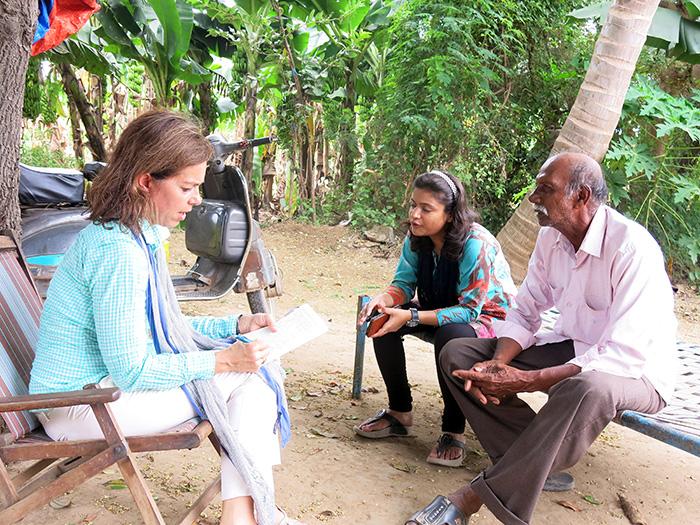
What does it take to reconcile the threat of global environmental change with the need to feed a growing population?
Developing countries will be the most vulnerable to changes in climate. A recent government study in India warned that the anticipated rise in global temperatures over the next three decades could reduce wheat yields in the country by as much as 23 percent. Related environmental problems—depleted groundwater, delayed monsoons, and intense rainfall—will also hurt productivity.
What this will mean for India’s food security, and especially the poor who cannot keep up with rising food prices, is the focus of Lisa Palmer’s recent reporting and writing.
Palmer, fellow for socio-environmental understanding at the National Socio-Environment Synthesis Center (SESYNC), was in India thanks to a travel grant from the Pulitzer Center on Crisis Reporting. There, she looked at new strategies designed to help small farmers adapt to climate change and visited several of the country’s “climate smart” villages where farmers use technologies, communications tools and renewable energy to improve their livelihoods and resilience to climatic variability.
Palmer Reports from India
“India's climate tech revolution is starting in its villages.” The Guardian, October 12.
“A River Runs Again: Reporting on India’s Natural Crisis.” New Security Beat, November 17.
“Learning from India's 'Smart' Farming Villages.” Yale Climate Connections, November 19.
Palmer’s work on science, the environment, agriculture, and sustainability has been featured in The Guardian, Nature, Nature Climate Change, Climate Connections, Yale e360, Slate, The New York Times, Scientific American, Nautilus, and many others. She first began to report on agriculture and the food production nexus while a media fellow at the Vermont Law School, and is now working on a book, Hot, Hungry Planet, to be published in 2016. She’s on Twitter @Lisa_Palmer.
The National Socio-Environmental Synthesis Center, funded through an award to the University of Maryland from the National Science Foundation, is a research center dedicated to accelerating data-intensive scientific discovery at the interface of human and ecological systems. Visit us online at www.sesync.org and follow us on Twitter @SESYNC.